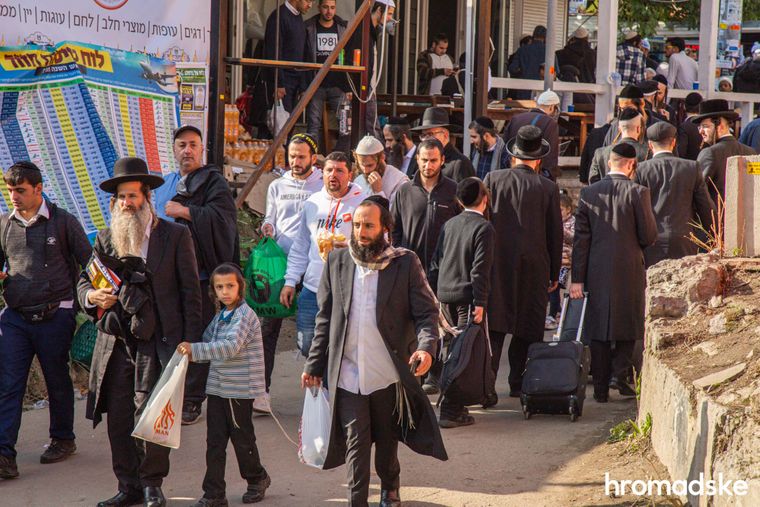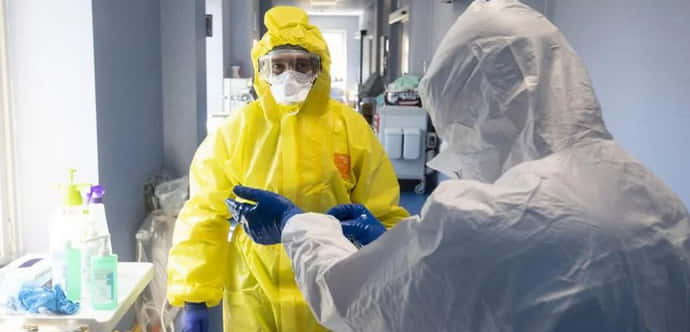Initially, on 25 August, President Zelenskyy announced at an urgent meeting that Ukraine will close its borders to foreigners incoming from "red zone" countries (currently, where there are more than 55 active COVID-19 cases per 100,000 of population). But the next day, the ban was extended to all countries, even "green" ones, and was to start on 29 August.
But on 27 August, the date was suddenly changed to the 28th, doing a disservice to all who urgently purchased tickets to make it inside the borders before they were closed - according to sources of BBC, because at that day, Hasidic Jews had already started arriving for their annual traditional pilgrimage to Uman.
The restrictions will be in place until 28 September; exceptions are made for the following categories of foreigners:
- People with a permanent or temporary residence permit in Ukraine;
- Refugees or those in need of special protection;
- Diplomats, employees of international organizations and their families, as well as those officially invited by the Ministry of Foreign Affairs;
- NATO military instructors or the Alliance's Partnership for Peace program, which will train Ukrainian troops or travel at the invitation of Ukraine's Defense Ministry.
- Those who pass through Ukraine in transit and leave it within two days (and there are relevant documents);
People studying in Ukraine; - Foreigners serving in the Armed Forces;
- Bus drivers and crew members of planes, ships and trains that have regular routes in Ukraine;
- Cultural figures who come at the invitation of cultural institutions, and one accompanying person;
- Athletes at official competitions and those accompanying them;
- Carriers of hematopoietic stem cells for transplantation;
- Those undergoing treatment in Ukrainian medical institutions;
- Foreigners with first-line relatives in Ukraine;
- Those with an official work permit in Ukraine;
- Technical specialists who will come at the invitation of Ukrainian companies.
Although the Ukrainian government denies it, the reason for these baffling policy curveballs lies in the traditional pilgrimage of Hasidic Jews to the grave of Tsadik Nahman in the central-Ukrainian town of Uman for the Jewish New Year, Rosh Hashanah.
And although Ukraine has been experiencing a surge in new coronavirus cases, only a desire to thwart the annual Jewish gathering can explain the sudden policy turn.
"If somebody tells you this is because of coronavirus, he is a liar. The Hasidim are THE ONLY reason for the [border] closure. Period. And I, for one, am not thrilled that my government is lying to me," European Pravda editor Serhiy Sydorenko commented on the decision to close the borders.
Today, Ukraine sees a new record of new #COVID19 cases: +2481, the 17th highest absolute COVID-19 growth rate in the world.
In a move to stop the annual hasidic mass pilgrimage, as of y'day, Ukraine reclosed its borders to most categories of foreignershttps://t.co/hoGUc7sqkj pic.twitter.com/yxwI1HWGpy
— Euromaidan Press (@EuromaidanPress) August 29, 2020
Uman, the burial site of Tzadik Nachman
The annual pilgrimage of Hasidim, an ultra-orthodox Jewish sect that arose in Ukraine as a spiritual revival movement during the 18th century, was always a prominent event in the provincial town of Uman, the burial site of Tzadik ("righteous one") Nachman. Tzadik Nachman founded the Breslov Hasidic movement and spent his last days in Uman. So all Jews considering themselves adherents of Breslover Hasidism consider it their duty to visit the grave of Tzadik Nachman. Traditionally, the largest pilgrimage happens on the Jewish New Year - the Rosh Hashana kibbutz - as bequeathed by Nachman himself.
This year, Rosh Hashana will take place on 18-20 September, but the Hasidim usually start coming to Uman earlier. One day before the Ukrainian state decided to close the borders, around 500 pilgrims were already in Uman, according to locals. Traditionally, up to 50,000 may come.
The annual Hasidic pilgrimage was the topic of intense discussions in Israel, where the state authorities called to refrain from the journey while representatives of the Hasidim stated it is possible to make it while upholding all restrictions to stop the spread of COVID-19.
Israel’s "coronavirus czar" Ronni Gamzu was in stark opposition to the pilgrimage and on 21 August penned a letter to Ukrainian President Volodymyr Zelenskyy expressing his concerns, as per The Times of Israel:
“I would like to express my concern that holding two weeks of intensive celebrations, in the heart of the city of Uman, where tens of thousands of people will celebrate in crowded conditions, will inevitably have severe short and long-term implications, both on the local community of Uman and beyond, as well as for the State of Israel...
In spite of the severe measures that are being taken by the government, the infection rates remain high, with an especially high prevalence of the disease in ultra-Orthodox communities...
A gathering of this sort, at such troubled times, is expected to generate mass events of infection of tourists and local Ukrainian residents, turning into a heavy burden on local medical systems, while thousands more are expected to come back to Israel and further spread the virus,” he wrote.
Apparently, this letter was decisive for the Ukrainian government's decision to close the borders, because, as Times of Israel wrote, Ukraine had reportedly agreed to let at least 5,000 people attend the pilgrimage, with a requirement to wear face masks in crowded places and refrain from gatherings of more than 30 people.
It also angered ultra-Orthodox and other right-wing lawmakers, who claimed Gamzu had exceeded his mandate and called for his firing.
The infection rate in Israel is higher than in Ukraine - at publishing date, Israel had 269 active COVID-19 cases per 100,000 of population, compared to Ukraine's 104.

Also asking Zelenskyy to stop the pilgrimage because of the pandemic risks was Uman's mayor Oleksandr Tsebriy, who came to seek an audience with Zelenskyy on 17 August.
While the governments of Israel and Ukraine are apparently content with the decision, the Uman locals servicing the Jewish pilgrims are not. The city earns well on the Rosh Hashanah pilgrimage: in 2019, local SMEs filled the local budget with $272 880 from hospitality activities. However, one-third was spent on cleaning measures.









